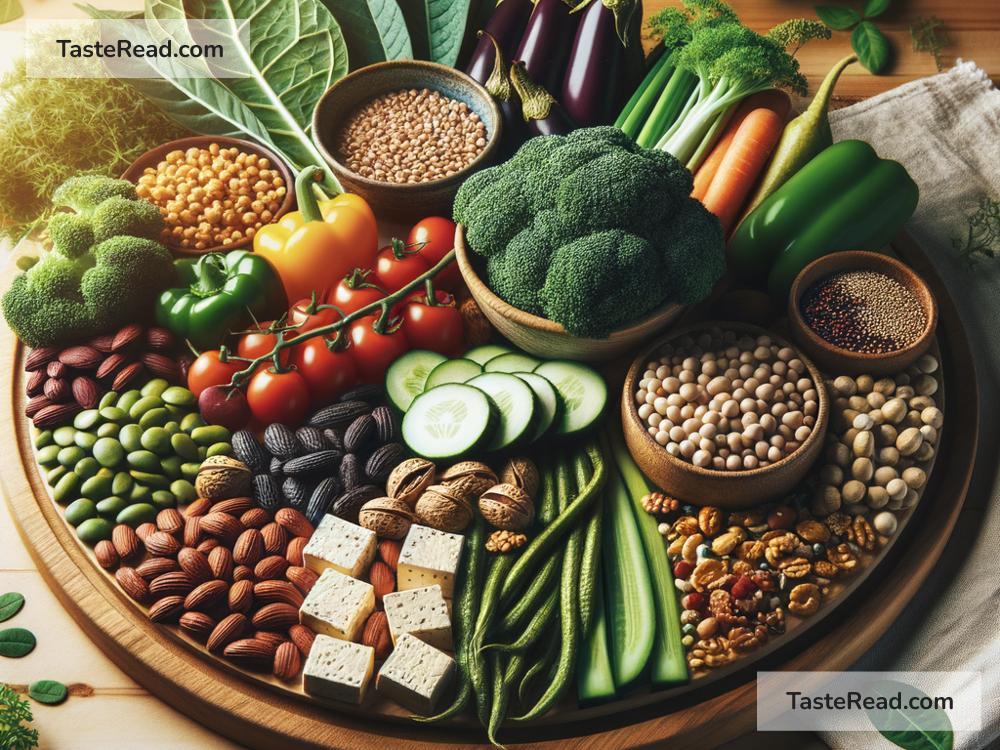The Science Behind Plant-Based Diets: Why They’re Good for You and the Planet
Plant-based diets are becoming more popular every day. You’ve probably heard about people switching to vegetables, fruits, grains, nuts, and seeds instead of eating meat, dairy, or processed foods. But what’s the science behind this trend? Is it really better for your health and the earth? Let’s dive into the facts in simple language.
What is a Plant-Based Diet?
A plant-based diet focuses on eating foods that come from plants. This includes veggies, fruits, grains like rice, oats, and quinoa, legumes like beans, lentils, and chickpeas, nuts, and seeds. It doesn’t mean you have to avoid meat completely—some people eat small amounts of fish, chicken, or eggs along with their plant foods. Others go completely plant-based, choosing vegan diets with zero animal products.
Eating plant-based doesn’t mean living on salad alone; there are so many colorful, flavorful, and filling dishes you can enjoy. From hearty lentil soups to burrito bowls loaded with veggies and guacamole, the options are endless.
The Benefits for Your Body
Plant-based diets are packed with nutrients that your body loves. Research shows that eating mostly plants can improve your health in several ways:
1. Better Heart Health
Plants are naturally low in saturated fat and cholesterol, which are found in animal products like red meat, butter, and cheese. Diets high in saturated fat can raise levels of “bad” cholesterol, increasing the risk of heart disease. Plants, on the other hand, are loaded with fiber—a nutrient that helps lower cholesterol and maintain healthy blood pressure. Whole grains, leafy greens, nuts, and fruits are particularly good for your heart.
2. Reduced Risk of Chronic Diseases
Studies have shown that eating more plants can reduce the risk of diseases like type 2 diabetes and certain types of cancer. Foods like beans and whole grains keep blood sugar steady, while antioxidants found in fruits and vegetables help fight harmful substances in your body that can damage cells. These antioxidants also play a role in preventing inflammation, which is linked to many chronic illnesses.
3. Healthy Weight Management
Plant-based diets tend to be lower in calories than diets full of processed foods and fatty meats. Plus, they’re rich in fiber, which helps you feel full and satisfied. When you eat whole, plant-based meals, you’re less likely to overeat or snack on junk food. This can make it easier to maintain or lose weight naturally.
4. Improved Digestion
If you’ve ever heard the phrase “eat your fiber,” here’s why: fiber is like a broom for your digestive system. It helps keep everything moving smoothly, preventing common issues like constipation. Fiber is found in plant foods, especially fruits, vegetables, and whole grains, but not in animal products. Eating plant-based makes it easier to meet your daily fiber needs.
The Impact on the Planet
Plant-based diets aren’t just good for you; they’re also good for the environment. Here’s how:
1. Lower Greenhouse Gas Emissions
Growing plants for food produces fewer greenhouse gases than raising animals for meat and dairy. Cows, for example, release large amounts of methane gas, a major contributor to climate change. By eating more plants and less meat, you can reduce your personal carbon footprint and help fight global warming.
2. Less Water Usage
Producing meat requires a lot more water than growing crops. To produce 1 pound of beef, farms can use thousands of gallons of water. On the other hand, crops like fruits, vegetables, and grains require significantly less water. By choosing plant-based meals, you’re saving water resources.
3. Protecting Wildlife and Forests
Animal agriculture is one of the leading causes of deforestation. Forests are cleared to make room for grazing animals or to grow food for livestock. This destroys habitats for wildlife and contributes to biodiversity loss. Eating plants instead of meat reduces the demand for land, protecting ecosystems.
How to Start Eating Plant-Based
Switching to a plant-based diet doesn’t happen overnight, and that’s okay! Here are some simple tips to get started:
- Start Small: Try “Meatless Mondays” or swap out one meal a day with a plant-based dish.
- Experiment with Recipes: Explore plant-based cooking using beans, rice, tofu, or colorful produce. There are plenty of easy, delicious recipes online.
- Focus on Whole Foods: Stick to whole grains, fresh fruits and vegetables, and avoid too many processed plant-based products like fake meats.
- Think about Balance: Make sure your meals include enough protein, healthy fats, and carbohydrates from plants. For example, add nuts and seeds to salads or use beans in soups.
- Be Kind to Yourself: You don’t have to be perfect. Every plant-based meal you eat makes a difference for your health and the planet.
Conclusion
Science shows that plant-based diets are a win-win for healthy bodies and a healthier planet. They can lower your risk of chronic diseases, help you manage your weight, and improve digestion—while also reducing greenhouse gas emissions, saving water, and protecting wildlife. Whether you go fully vegan or simply add more fruits and veggies to your plate, every step counts.
Eating plant-based doesn’t have to be hard or boring. With so many delicious foods to choose from, it’s a change you can enjoy—and feel good about. Why not give it a try? Your body and the earth will thank you!


